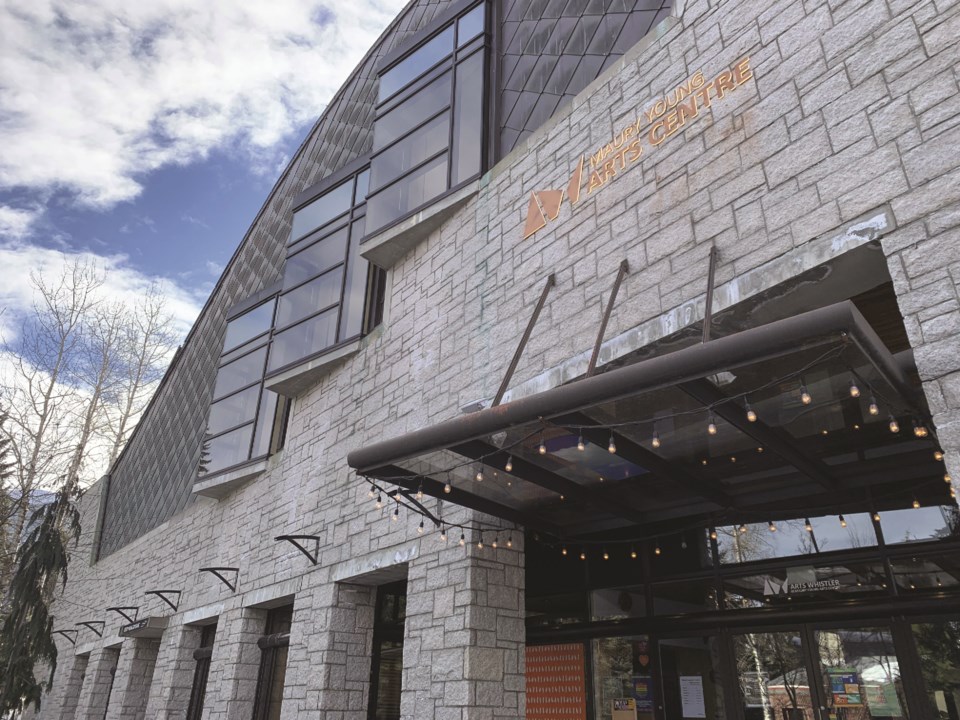From trauma to climate change, AI and art or the democracy debate, Whistler Institute’s Global Perspectives Speaker Series is bringing experts to town to discuss issues that reverberate locally and globally.
First spearheaded in 2019, the series runs at Maury Young Arts Centre with six speakers delivering keynotes on issues that trend globally and interest Whistlerites. Mandy Rousseau is the executive director for the Institute, and she said the series presents an opportunity for healthy debate.
“Each of these topics and speakers have been selected based on community request, and on speakers agreeing to share what we're considering disruptive concepts,” she said.
“We can all find spaces of agreeableness online, but meaningful change comes from respect, curiosity and critique. Our goal with the speaker series is for these events to be safe, inclusive spaces where opposing ideas can be shared and create positive change for the future in Whistler and beyond.”
In an ever evolving world full of complex problems and rising polarization, there’s no shortage of topics to choose from. Feedback from the last speaker series, combined with trending discourse, informed the committee's decisions.
Whistler Institute Speaker Series lineup
The first speaker takes the stage Sept. 19, with retired corporal Lealand Muller. Muller became paralyzed from the waist down after a tobogganing accident, and he could no longer serve in the military as a result. Muller found a passion for serving and sports again when he became an 2023 athlete at the Invictus Games in Dusseldorf, Germany. The event description on Whistler Institute’s website notes he’ll be discussing trauma, disability, accessibility and the benefits of sports for mental and physical challenges.
With Whistler’s strong adaptive sports community and the upcoming Invictus Games, held in Whistler and Vancouver in 2025, the event is likely to be well attended.
Next in the lineup is Decoa Harder, presenting a lecture titled “Crop Resiliency in a Changing Climate," Nov. 7. Harder has worked in Okanagan Valley wine for 25 years, and is the co-founder and managing partner of Ex Nihilo Winery in Lake Country.
Climate change and its impact on B.C. wineries should attract oenophiles, and the issue is important for the food and beverage industry that drives much of Whistler’s economy. Billed as a compassionate inquiry into the challenges the industry faces, attendees can expect an insiders look at what directions the industry takes moving forward.
The new year brings discussion about a new, disruptive technology: Kris Krüg lectures on artificial intelligence Jan. 23, 2025. His talk will centre around how creatives can harness the power of AI, ethics around using the technology and much more. Krüg is a photographer, the founder and CEO of Future Proof Creatives and describes himself as a “techartist, quasi-sage, cyberpunk anti-hero from the future.”
Considering the huge number of local photographers, designers and all around artists who call Whistler home, the topics are sure to be of interest.
Come February 27, Dr. Brian Storey and Quinn Storey, will dig into how to raise a high performance athlete.
Rousseau said the community has asked for this topic in numerous ways.
“What makes this one an interesting conversation is that we know that aiming for the podium – it’s such a small percentage of people that end up on the podium. So, how do you do that in a way that is not putting pressure on yourself, on your child, but also creating a positive impact for that child in a global sense by creating good citizenship,” she said.
Second last on the billet is a presentation by Dr. Kennedy Stewart, former mayor of Vancouver and associate professor at Simon Fraser’s School of Public Policy. Stewart’s talk on March 27 centres on the importance of disagreement within democracy and science.
“When it comes to democracy and when you look at academia, the whole process involves respectful critique and really honing in on how you land on the decision and the outcome that you were presenting. I think that one's going to be really compelling in itself, especially because we'll be on the other side of the American election,” Rousseau said.
Lastly, Whistler Lakes Conservation Foundation and yet to be revealed panelists will finish the series discussing the importance of healthy watersheds.
Rousseau said the inspiration for the series came from having a growing arts and culture scene in Whistler which needed an outlet to bridge the gap between non-profits engaged in these discussions and an interested public.
“If people are interested in any of the topics, I would encourage them to attend and meet like minded community members who are also interested. You get to connect with people who have an interest in AI, or an interest in the state of democracy and in science.”




